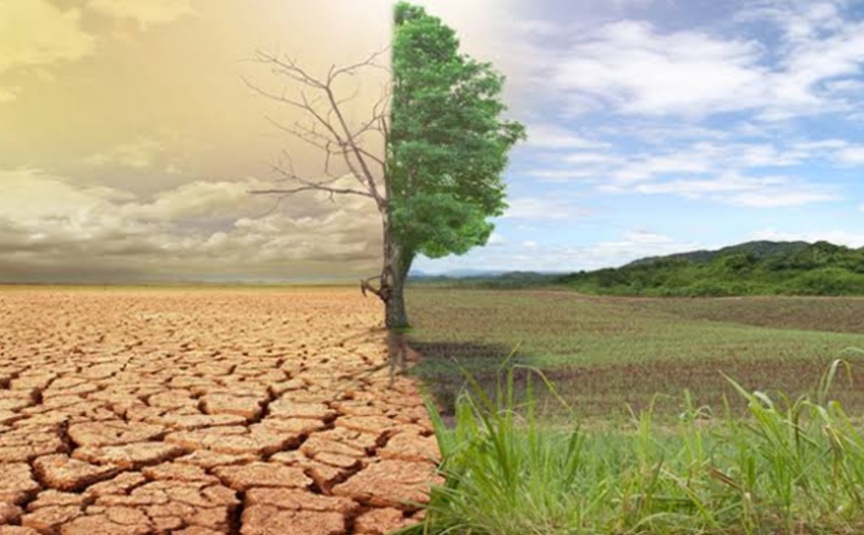From Femi Mustapha and Divine Macaulay, in Kaduna
The Head of the Coalition of Association for Leadership, Peace Empowerment and Development (CALPED), Mr Yusuf Isiyaku Goje, has said that human activity is the primary driver of the Climate change being experienced in Kaduna State.
He said this during a two-day Technical Session for validation of The Community Engagement Framework for Climate-Related Shocks responsive social protection supported by LAFIYA in Kaduna today (Thursday).
According to him logging and development have led to the widespread destruction of forests, wetlands, and other carbon sinks—natural resources that store carbon dioxide and prevent it from being released into the atmosphere.
He lamented that the most worrisome is the Charcoal business that has become rampant in some parts of the State.
Goje, however, agreed that people are only responding to poverty within their capabilities and abilities, saying they’re doing that because other institutions that need to equip them with information and improve their capacities around resilience are lacking.
“And so, the forms have happened over the years, things have changed in how people and government are engaging. We just want to see that based on current existing reforms in Kaduna State.
“We have an engagement framework that easily connects the people to the government and government to the people in the delivery of program interventions and responses to the needs of people around addressing poverty, which can also be multiplied by the impact of climate change
.
“So, we are not saying that the vocation that people are now having is not motivated by poverty. On the contrary, we understand that it is motivated by poverty.
” We just want communities now to go a bit more ahead of that in terms of responses.”He expressed hope that, at the end of the engagement, they will produce documents that will address the specific needs of the people in Kaduna as far as engaging the government is concerned to ensure that government responses to their needs are addressed holistically – directly and specific issues that the people are faced with.
Similarly, the Civil Society Advisor for Open Government Partnership (OGP) Kaduna and Lead Facilitator, Development of Community Engagement Framework on Climate-Related Shocks and Social Protection System Danjuma Abbas Dangiwa, observed that People are only responding to poverty within their capabilities and abilities. They’re also doing that because other institutions that need to equip them with information and improve their capacities around resilience are lacking.
He harped that the TWG will produce an engagement framework that easily connects the people to the government and the government to the people in the delivery of program interventions and responses to the needs of people. Addressing poverty, which can also be multiplied by the impact of climate change.
“So, we are not saying that the vocation that people are now having is not motivated by poverty. On the contrary, we understand that it is motivated by poverty.
“We also understand that people are responding to poverty within their levels of capabilities and capacities. We just want communities now to go a bit more ahead of that in terms of responses.
Speaking earlier, the Special Assistant on Climate Change to Kaduna State Governor, Hon Yusuf Idris Amoke, said the event is a community engagement framework on climate change-related shocks to response to social protection in communities.
According to him, for every action of government, there must be a policy around it.
Amoke explained that the Kaduna State Government, in partnership with the OGP, is now developing a policy framework that can guide the actions of government on people in the communities that bear the brunt of the climate crisis.
” So, in government, without policies you may not be able to do things even if you want to do them.
‘These policies are the documents that guide what to do or not to do because you will be able to measure impact, failure, or success through the policy. Once there is no policy, it’s very difficult for government to take action on certain things.
“It is a recognition that people in the community are disproportionately affected by the climate crisis. Hence the policy is coming up.
“These policies come in stages, and this is the final stage of validation where stakeholders come together – people from government, community, CSOs, and private sector; all stakeholders come together to see that they validate the document from their perspectives to see that the draft documents suites the subject matter.
“So that is why we are today, and it’s a work in progress.”On the caliber of stakeholders present at the validation meeting, Hon Amoke said his expectation is positive because relevant stakeholders are captured – stakeholders that are into activities of both climate change and social protection.
“We expect that a robust document will be produced. And don’t forget that policy is a process. Once a document is produced, it has a life span and is subjected to review, so once there is a loophole noticed or something new that should be included, a review would be called.”







